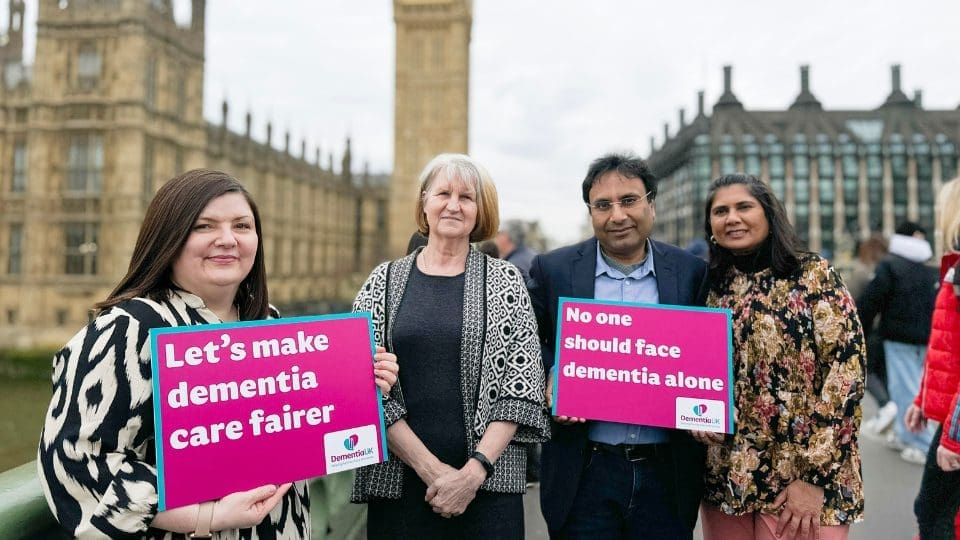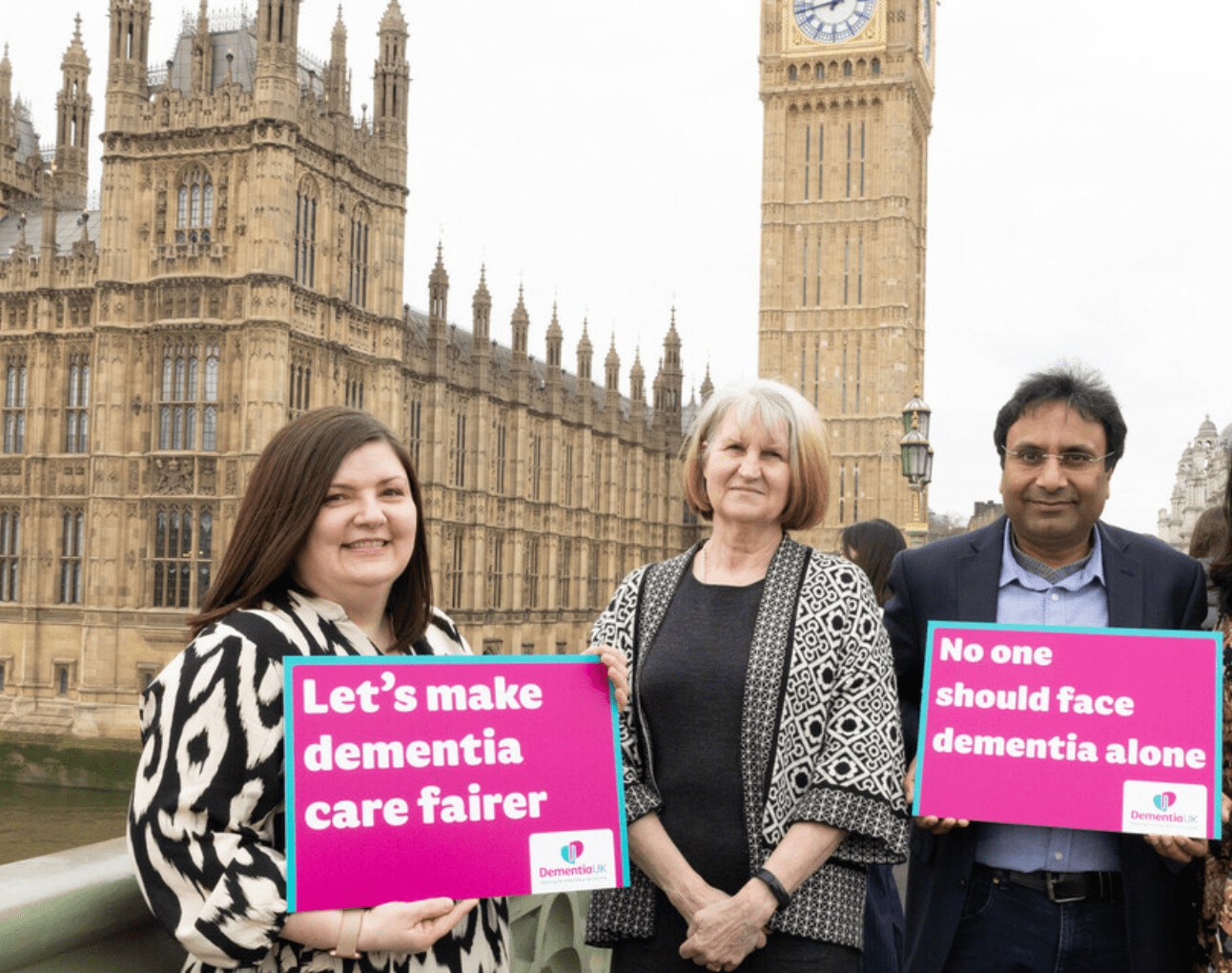
Fix the funding: make care fairer for people with dementia
We need the Government to urgently review the continuing healthcare funding process so that more people with dementia can access the support.

With more people in the UK dying of dementia than any other condition, our Head of Policy, Campaigns and Public Affairs, Andrew Pike, reflects on why we must all work together – including the Government and health leaders – to ensure that every family affected receives the support it needs.
This is the second year in a row that dementia has been recorded as the leading cause of death in England and Wales.
Unfortunately, this announcement is not a surprise. Dementia is a huge and growing health crisis. Today, nearly one million people in the UK are living with dementia. One in two of us will be affected by the condition in our lifetime – either by caring for someone with the diagnosis, developing it ourselves, or both.
The ONS statistic hammers home that as the number of people facing dementia continues to grow, we can no longer delay making urgent changes to health and social care systems to ensure that everyone affected by the condition gets the specialist care they need.
Dementia is a progressive, life-limiting condition. Everyone living with it will ultimately die from or with it. One in three people born today will develop dementia in their lifetime.
We’re seeing progress on the development of new treatments that could benefit some people in the early stages of Alzheimer’s disease (the most common form of dementia). We are also developing a greater understanding of lifestyle factors that can increase the risk of certain types of dementia.
Yet until a reliable treatment that works for everyone is found, the number of people living with dementia will continue to increase – and currently, there are too many barriers to people receiving the support and care they need. Dementia UK is committed to breaking down these barriers.
Dementia is also more common later in life, and as we’re all living longer, the likelihood of developing the condition also increases.
In short, no. Despite dementia being the leading cause of death, there is no long-term integrated pathway of care for people living with the condition. For too long, disjointed health and care services have left people falling through the gaps in support. There is confusion about where to go for help and when, and all too often, services are failing to provide the specialist support that people living with dementia and their families need.
For example, NHS continuing healthcare funding can be a lifeline for people in England with long-term and complex health needs. It covers costs such as home carers or care home fees, but families affected by dementia face significant obstacles in accessing this vital funding. They are missing out because of a flawed assessment process that does not recognise the unique and challenging needs of people living with dementia.
Through our ‘Fix the funding’ campaign, we are calling for the Government to urgently review the NHS continuing healthcare funding process to ensure that it works for people living with dementia – but it is just one aspect of an inadequate health and care system that can push families to breaking point.
We need all of society to recognise the devastating impact that dementia can have, especially if the right support structures are not in place. For too long, and over successive governments, attempts to improve dementia care have failed to deliver. The new Labour Government has a chance to change this.
As the ONS statistics show, dementia care is a healthcare crisis that we can no longer ignore. However, we know that with the right political will, it can be fixed. We are committed to ensuring that life-changing support is available to anyone affected by dementia.
Every day, our specialist Admiral Nurses deliver expert emotional and practical support to families facing dementia, demonstrating the impact that good care can have on someone’s quality of life. But we cannot do it alone.
There are tangible and practical steps that the new Government can and should take which will deliver real change, including:
Join our campaign to ensure that all political parties put dementia at the top of the agenda so that no one should face dementia alone.

We need the Government to urgently review the continuing healthcare funding process so that more people with dementia can access the support.
Some people with dementia qualify for NHS continuing healthcare (CHC) funding to meet the costs of some of their care needs, but the application process isn’t always easy. Here, we explain the facts you need to know about CHC and advice from our dementia specialist Admiral Nurses.

We’re campaigning for better care so that everyone affected by dementia gets the specialist support they deserve.